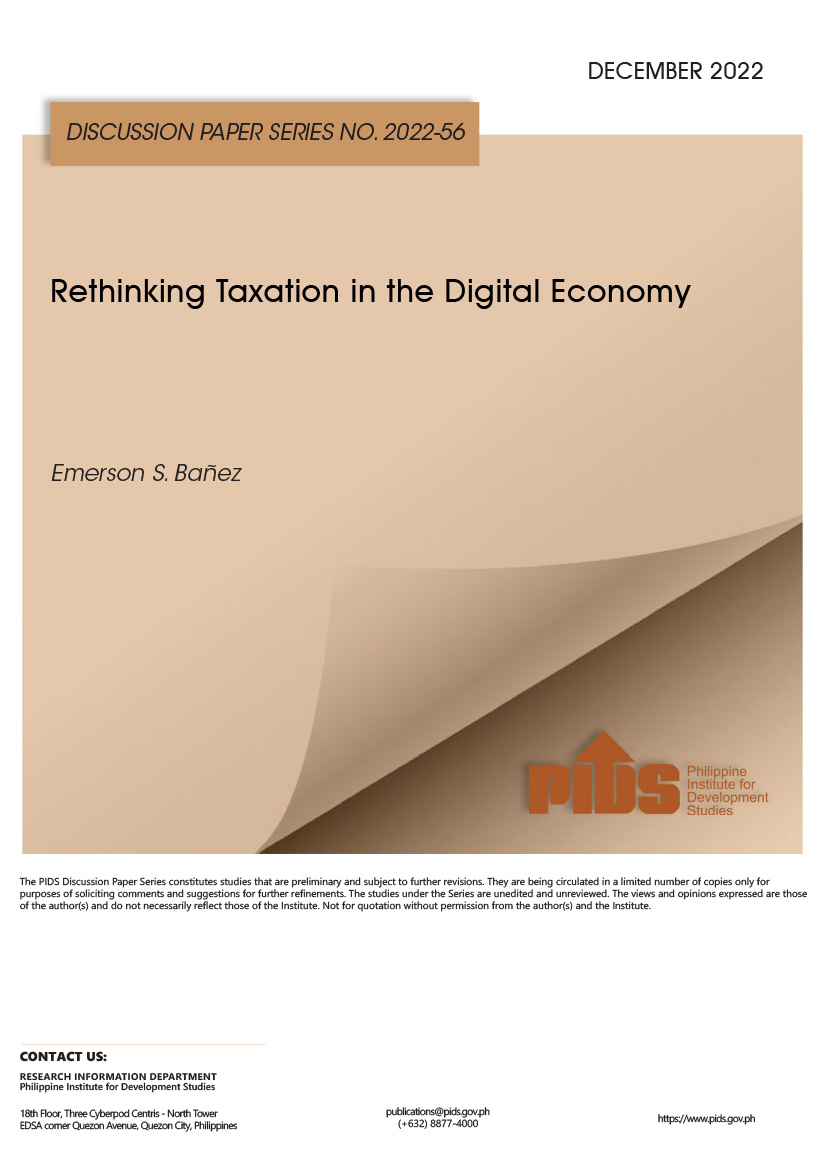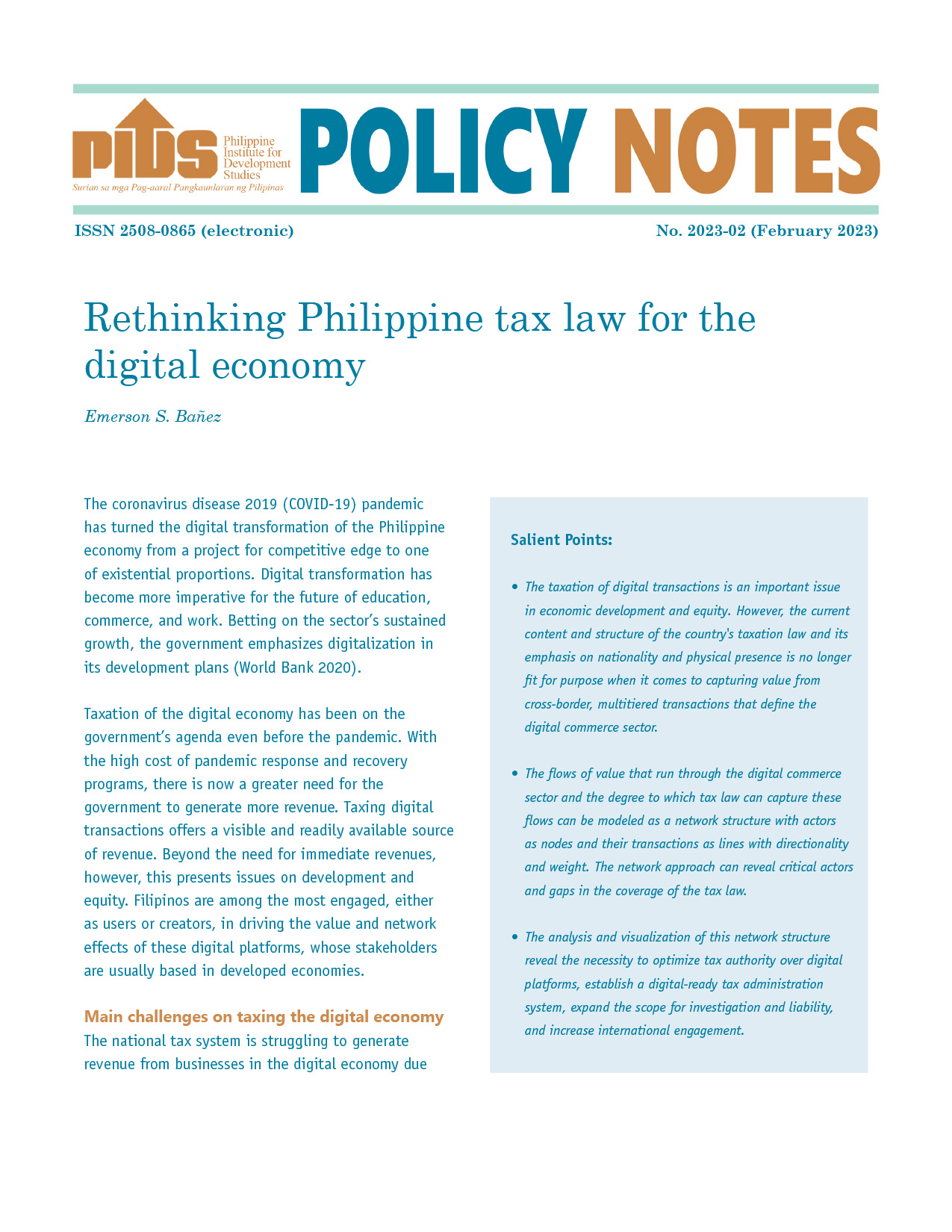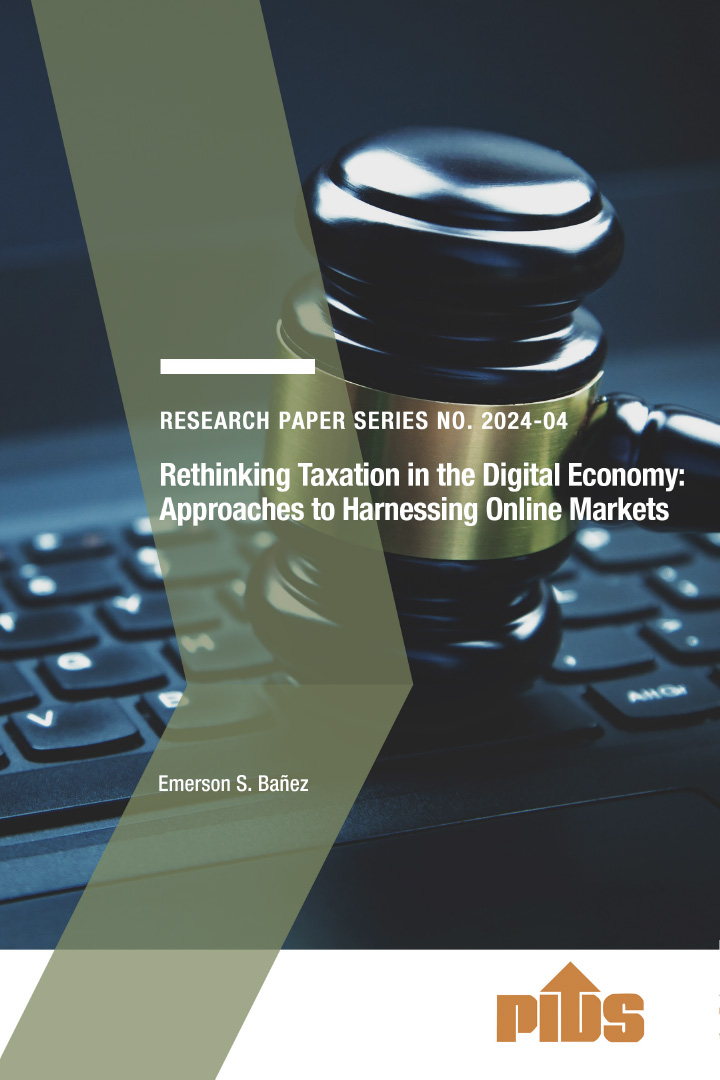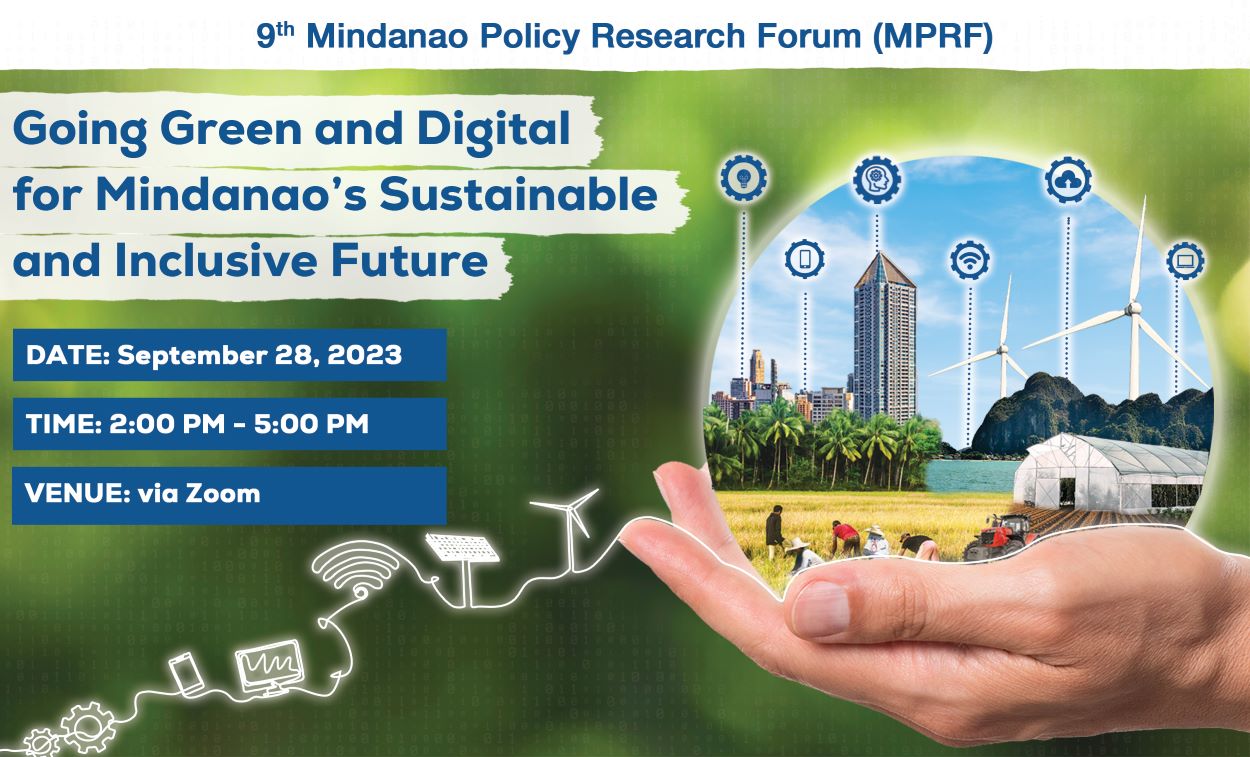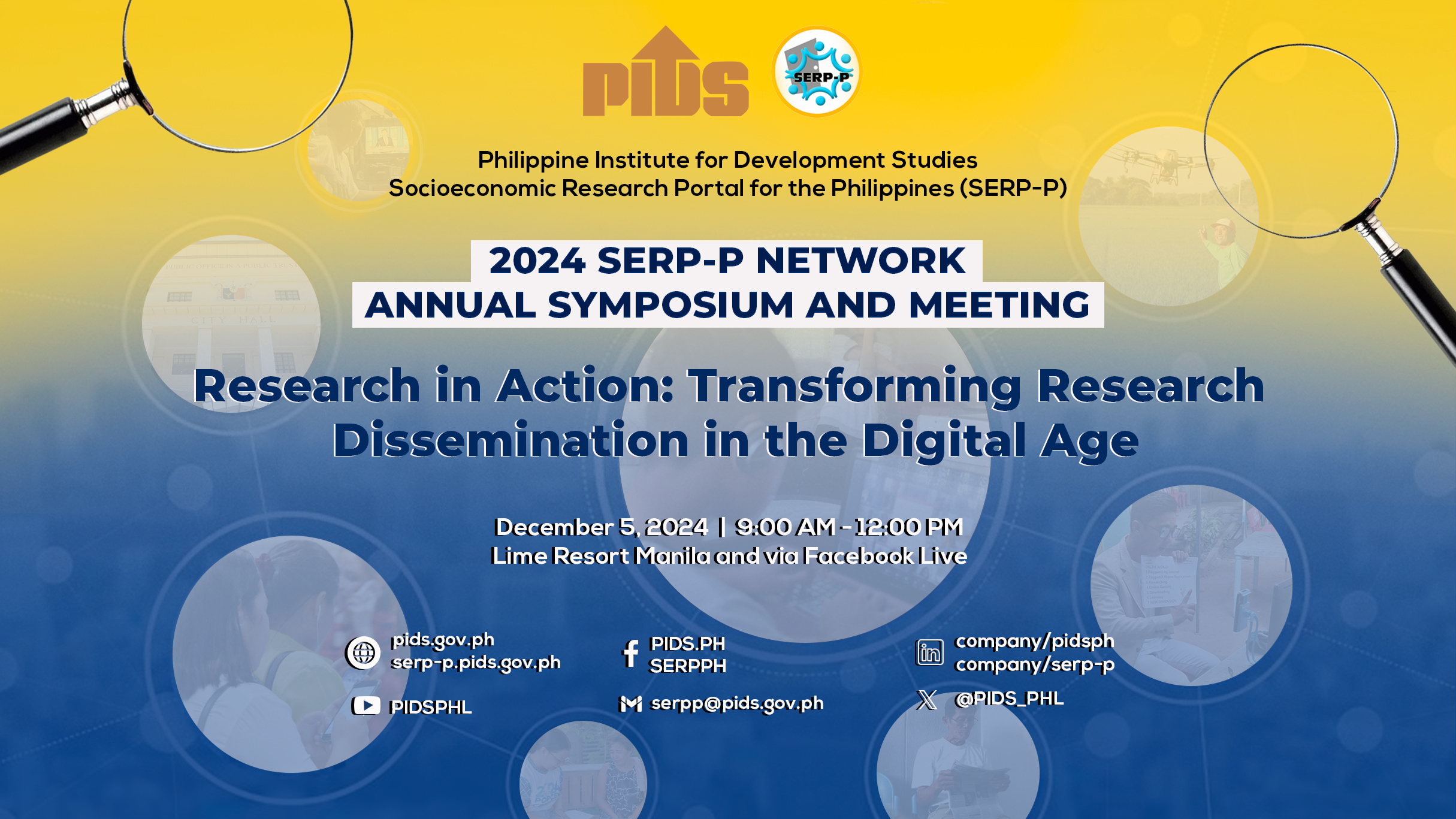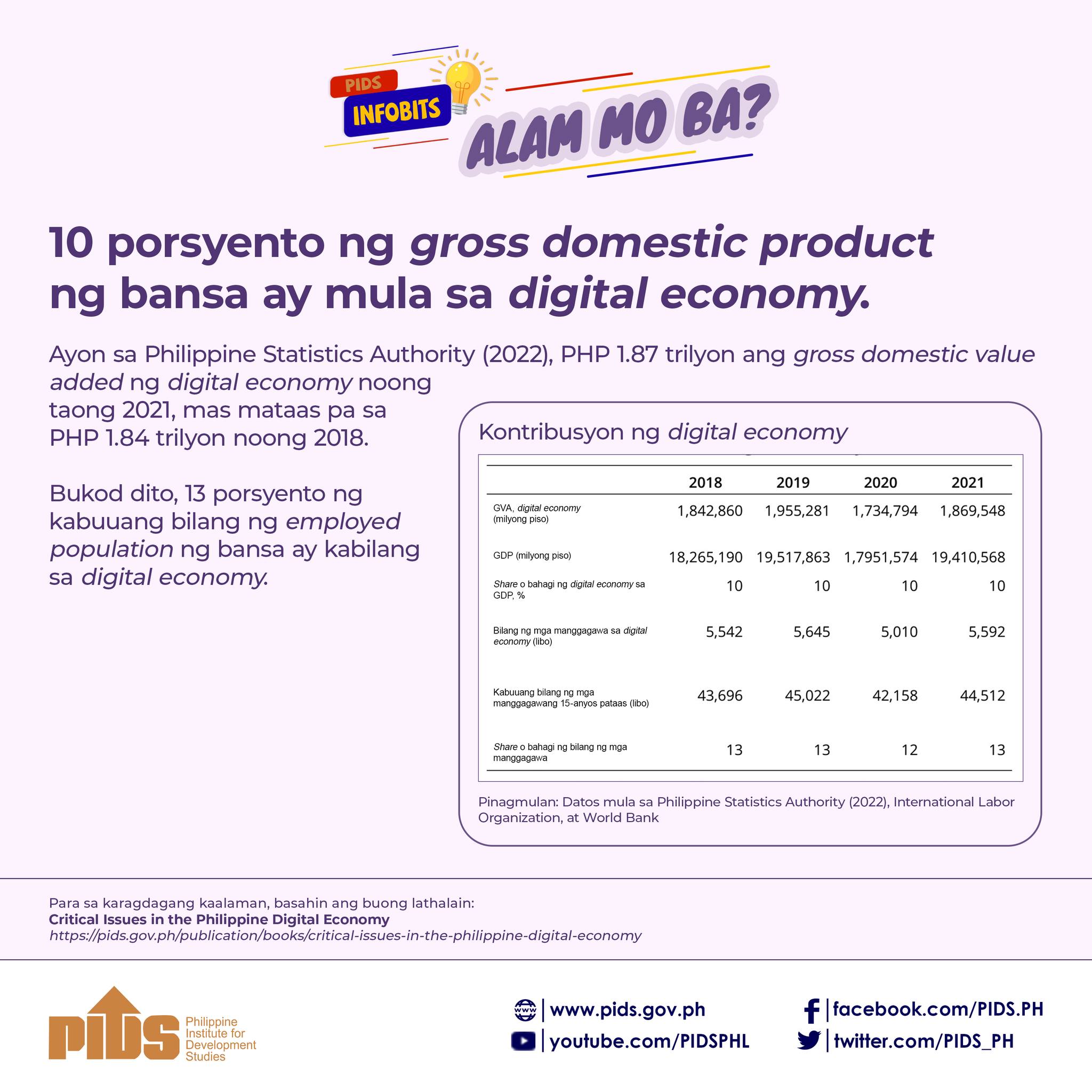
Philippine tax law must be updated for the government to capture the revenues from the digital commerce boom.
This was emphasized at a recent webinar organized by the Philippine Institute for Development Studies (PIDS). The webinar featured the study “Rethinking Taxation in the Digital Economy” by PIDS consultant Emerson Bañez, an assistant professor at the University of the Philippines College of Law. The study evaluated the country’s legal framework to identify gaps and possible solutions to the challenges in taxing digital transactions.
Bañez explained that the current tax system was developed for brick-and-mortar or traditional businesses with a physical location. This is not wholly applicable to e-commerce as not all digital businesses have physical stores or offices in the country where they sell their goods and services and where the same is consumed.
“In a virtual cross-border world, the effectiveness of existing tax measures is limited. The ease through which online accounts can be set up and deployed as digital storefronts, often anonymously by users operating from homes, which are not tax-mapped, and through platforms that operate abroad, limits the Bureau of Internal Revenue’s (BIR) enforcement powers,” he said.
Tax Management Association of the Philippines President Suzette Celicious-Sy, a discussant at the webinar, shared that the BIR has put forward recommendations to address the challenges. These include issuing regulations and circulars that reiterate the taxpayers’ obligations concerning online business transactions and mandating the use of electronic invoicing systems. However, no existing tax law covers foreign businesses operating outside of the Philippines but providing digital goods and services consumed in the country.
Celicious-Sy shared that the legislators are working to address this. Recently, a bill that will impose a 12-percent value-added tax on digital transactions was filed in Congress.
“There are provisions in the bill that might be difficult to enforce, such as requiring nonresident digital service providers to designate a representative office or agent and suspend business operations for failure to register as taxpayers in the Philippines. Overall, there needs to be a law to govern the taxation of nonresident foreign corporations and capture allocated taxes for income sourced within the Philippines,” she emphasized.
Bañez explained that traditional businesses consider political and other factors when calculating taxes. In contrast, foreign digital companies like Netflix and Amazon use a more straightforward computation by multiplying their service cost by the number of subscribers to determine their tax liability.
He recommended tapping payment systems and digital platforms used by online sellers as withholding agents to determine how much taxes are due and encourage sellers and companies to comply with regulations.
Bañez also emphasized the importance of making the country’s tax administration digital-ready. This, he said, may be done by “procuring the right technology, hiring individuals with the right skills, and reskilling the tax workforce”.
Watch the webinar at https://fb.watch/kRq0NiKXj5/ or https://youtu.be/18IlZF0yG-I.
For more videos of PIDS events, go to https://www.pids.gov.ph/videos. ###

